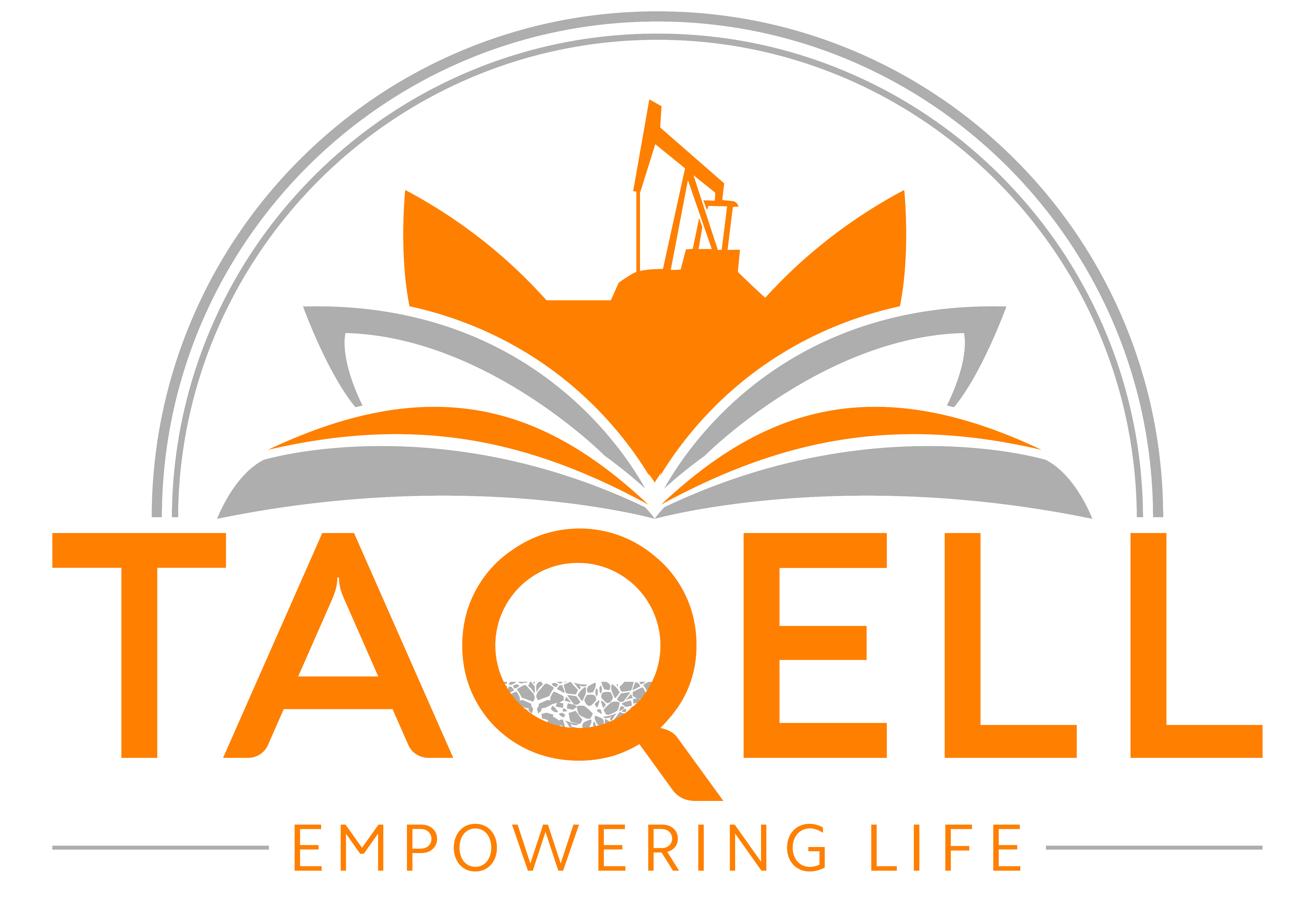Course Overview
The In-Situ Methods of Geotechnical Investigation course at TAQELL provides comprehensive training on various in-situ techniques used to assess subsurface conditions directly at the site. This course is designed to equip participants with the knowledge and skills necessary to perform effective geotechnical investigations, interpret data accurately, and apply findings to engineering projects.
Course Format
• Online: Flexible and accessible learning from anywhere, suitable for working professionals.
• Offline: Hands-on training with direct access to instructors and field equipment, ideal for those who prefer in-person interaction.
Detailed Course Content
1. Scope and Need for Geotechnical Investigation
Geotechnical investigations are crucial in civil engineering projects to determine soil and rock properties, identify geohazards, and provide data for safe and economical design. They are applied in site selection, foundation design, slope stability analysis, earthworks, and environmental assessment. Challenges include variability in subsurface conditions, accurate data collection, and interpretation. Participants will gain an understanding of how geotechnical investigations play a critical role in ensuring the safety, stability, and longevity of engineering structures.
2. The Standard Penetration Test (SPT)
is examined in detail, including modern advancements like energy measurement and wireline systems. Key topics cover the SPT procedure with step-by-step methodology and equipment setup, emphasizing the importance of energy correction factors and hammer calibration for accuracy. Wireline systems are explored for continuous sampling and in-situ testing in deep boreholes. Data interpretation involves correlating SPT blow counts with soil properties such as density, shear strength, and bearing capacity. Participants will gain practical skills in conducting SPT, integrating energy measurements, utilizing wireline systems, and interpreting results for comprehensive geotechnical analysis.
3. Cone Penetration Test (CPT) and Soil Sampling Methods
Participants in this comprehensive training will focus on the Cone Penetration Test (CPT) and various soil sampling techniques. The training covers the CPT procedure, including equipment setup, execution steps, and thorough data acquisition and interpretation. Emphasis will be placed on determining critical soil parameters such as tip resistance, sleeve friction, and pore pressure. Additionally, participants will learn multiple soil sampling techniques, including Shelby Tube Sampling for undisturbed samples, Split Spoon Sampling for disturbed samples as part of SPT, and Auger Sampling using hand or power augers for shallow soil exploration. By the end of the training, participants will be proficient in conducting CPT, adept at soil sampling methods, and capable of interpreting CPT data to effectively assess subsurface conditions.
4. Other Methods
This training explores additional in-situ geotechnical investigation methods to complement SPT and CPT. Key topics include the Pressure meter Test (PMT) for measuring soil deformation and strength parameters, the Vane Shear Test (VST) for determining in-situ shear strength of soft clays, and Field Permeability Tests (constant head and falling head) to assess soil permeability in situ. Seismic methods such as refraction and reflection techniques are used to evaluate subsurface stratigraphy and dynamic soil properties. Geophysical methods including electrical resistivity, ground-penetrating radar (GPR), and electromagnetic techniques are employed for non-invasive subsurface investigation. Participants will gain the ability to select and apply suitable in-situ testing methods based on project requirements and site conditions, interpreting results effectively for geotechnical analysis.
5. Site-Specific Surveys and Understanding Project Requirements
Tailoring geotechnical investigations to align with specific project needs is crucial for achieving successful outcomes. Key topics include understanding project requirements, site conditions, and environmental factors during project planning. Survey design involves developing a comprehensive investigation plan that includes selecting appropriate in-situ methods and equipment tailored to the site’s characteristics. Efficient data collection, management, and analysis are essential for gathering accurate field data. Reporting and documentation encompass preparing detailed geotechnical investigation reports that include findings, interpretations, and recommendations for informed decision-making. Participants will gain proficiency in designing and executing site-specific geotechnical surveys, understanding project requirements thoroughly, and effectively communicating findings through comprehensive reports.
Learning Outcomes
Upon completing the In-Situ Methods of Geotechnical Investigation course, participants will be able to:
• Understand the scope and necessity of geotechnical investigations for various civil engineering projects.
• Perform Standard Penetration Tests (SPT) with energy measurements and wireline systems.
• Conduct Cone Penetration Tests (CPT) and various soil sampling methods.
• Apply additional in-situ testing methods such as pressuremeter tests, vane shear tests, and field permeability tests.
• Design and execute site-specific geotechnical surveys, ensuring thorough and accurate data collection and interpretation.
• Prepare detailed geotechnical reports and communicate findings effectively.
Who Should Attend?
This course is ideal for:
• Geotechnical engineers and technicians.
• Civil engineers involved in site investigations and foundation design.
• Construction project managers and site supervisors.
• Engineering consultants and planners.
• Students and recent graduates in geotechnical engineering.
Course Benefits
• Expert Instruction: Learn from experienced geotechnical professionals with extensive field and laboratory experience.
• Hands-on Experience: Gain practical skills through interactive sessions and real-world applications.
• Flexible Learning: Choose between online and offline formats to suit your schedule and learning preferences.
• Comprehensive Curriculum: Cover all major in-situ geotechnical investigation methods and techniques.
• Networking Opportunities: Connect with peers and industry professionals to enhance your professional network.



